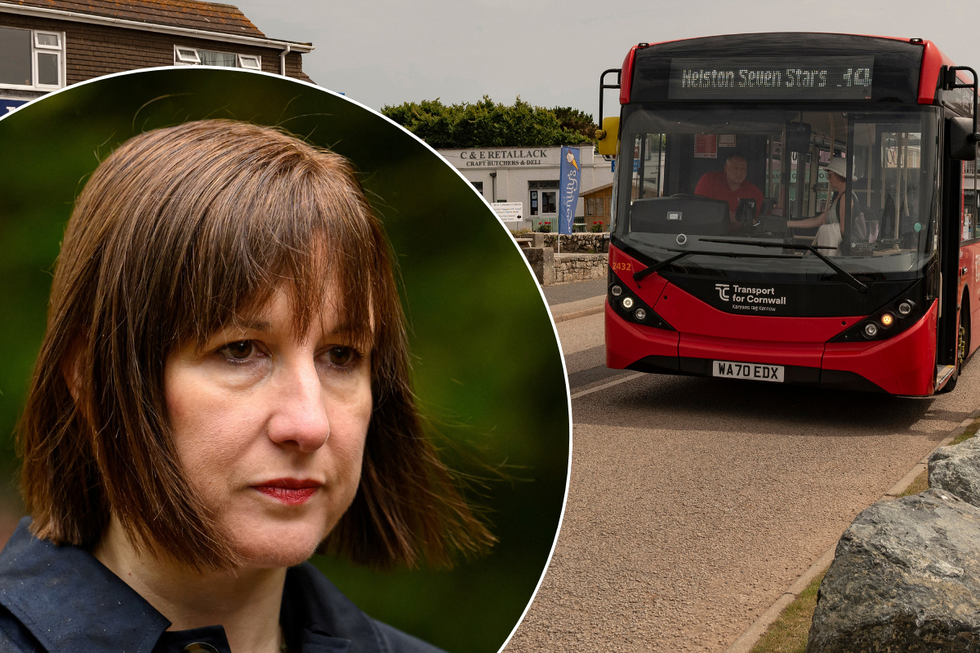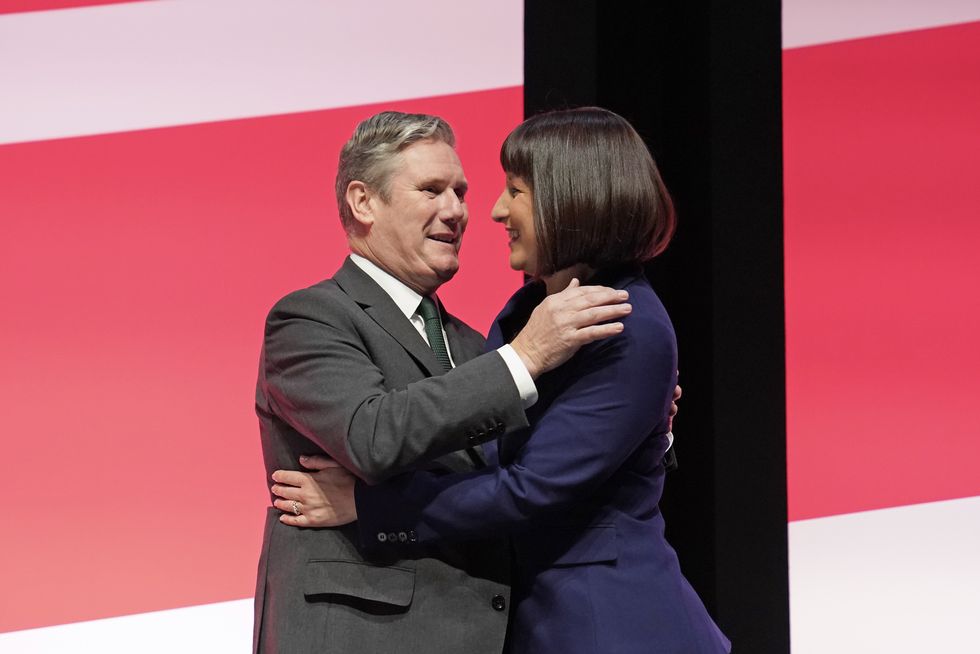Patrick O'Donnell
Guest Reporter
Prime Minister Keir Starmer has confirmed the cap on bus fares will be raised from £2 to £3 in a blow to commuters.
Ahead of this week's Autumn Budget, the Labour leader defended the new Government's fiscal decision-making and said "better days were ahead".
This hike to the bus fare cap is expected to remain in place until the end of 2025.
Starmer shared: "On the £2 bus fare, first thing to say is the Tories only funded that until the end of 2024 and therefore that is the end of the funding in relation to a £2 capped fare.
"I do know how much this matters, particularly in rural communities where there’s heavy reliance on buses.
"And that’s why I’m able to say to you this morning that in the Budget we will announce there will be a £3 cap on bus fares to the end of 2025 because I know how important it is."
Do you have a money story you’d like to share? Get in touch by emailing [email protected].

Both the Prime Minister and the Chancellor Rachel Reeves have warned that "tough decisions" are having to be made to balance the books.
The new Labour Government has cited the £22billion "black hole" in the public finances which Reeves hopes to address with her Autumn Budget on October 30.
With this hike to the bus fare cap, the Chancellor reportedly hopes to raise £350million a year for the Treasury.
Recently leaked analysis found that that every £1 spent on the cap generates between 71p and 90p in benefits.
According to the Department for Transport, the support measure is "not financially sustainable" for the taxpayer or bus operators.
Speaking to The Mirror, Emily Yates, the co-founder of the Association of British Commuters, outlined potentially at stake for commuters.
She explained: "This would have a huge impact on rural areas.
"Yet, these are exactly the areas that have suffered most due to decades of declining bus services; causing poverty, forced car ownership and social isolation."
LATEST DEVELOPMENTS:

Speaking in Birmingham earlier today, Starmer claimed the Chancellor shall confirm £240m in funding for local services to help get people back to work at this week’s Budget.
"Rebuilding Britain and delivering growth will take the skills and effort of all of us," he added.
"That’s why this Budget will also get Britain working. It will pave the way for reforms that tackle the root causes for economic inactivity and make sure that those who can work do work.
"As a Labour Government, we will always help those who cannot support themselves, but the UK is the only G7 country for whom inactivity is still higher than it was before Covid."
Find Out More...
Ahead of this week's Autumn Budget, the Labour leader defended the new Government's fiscal decision-making and said "better days were ahead".
This hike to the bus fare cap is expected to remain in place until the end of 2025.
Starmer shared: "On the £2 bus fare, first thing to say is the Tories only funded that until the end of 2024 and therefore that is the end of the funding in relation to a £2 capped fare.
"I do know how much this matters, particularly in rural communities where there’s heavy reliance on buses.
"And that’s why I’m able to say to you this morning that in the Budget we will announce there will be a £3 cap on bus fares to the end of 2025 because I know how important it is."
Do you have a money story you’d like to share? Get in touch by emailing [email protected].

Both the Prime Minister and the Chancellor Rachel Reeves have warned that "tough decisions" are having to be made to balance the books.
The new Labour Government has cited the £22billion "black hole" in the public finances which Reeves hopes to address with her Autumn Budget on October 30.
With this hike to the bus fare cap, the Chancellor reportedly hopes to raise £350million a year for the Treasury.
Recently leaked analysis found that that every £1 spent on the cap generates between 71p and 90p in benefits.
According to the Department for Transport, the support measure is "not financially sustainable" for the taxpayer or bus operators.
Speaking to The Mirror, Emily Yates, the co-founder of the Association of British Commuters, outlined potentially at stake for commuters.
She explained: "This would have a huge impact on rural areas.
"Yet, these are exactly the areas that have suffered most due to decades of declining bus services; causing poverty, forced car ownership and social isolation."
LATEST DEVELOPMENTS:
- Workers could be £3,000 worse-off under Labour's National Insurance raid, claims new analysis
- Labour accused of '1970s style socialism' as Starmer says Britons face ‘harsh reality’
- Britons face 'death tax on pensions' as part of inheritance tax raid

Speaking in Birmingham earlier today, Starmer claimed the Chancellor shall confirm £240m in funding for local services to help get people back to work at this week’s Budget.
"Rebuilding Britain and delivering growth will take the skills and effort of all of us," he added.
"That’s why this Budget will also get Britain working. It will pave the way for reforms that tackle the root causes for economic inactivity and make sure that those who can work do work.
"As a Labour Government, we will always help those who cannot support themselves, but the UK is the only G7 country for whom inactivity is still higher than it was before Covid."
Find Out More...